The Evolution of Flexadin Plus and Flexadin Advanced Original
Flexadin® brand: A convenient solution for pet owners who want to support their pet’s joint health across the spectrum of life stages.
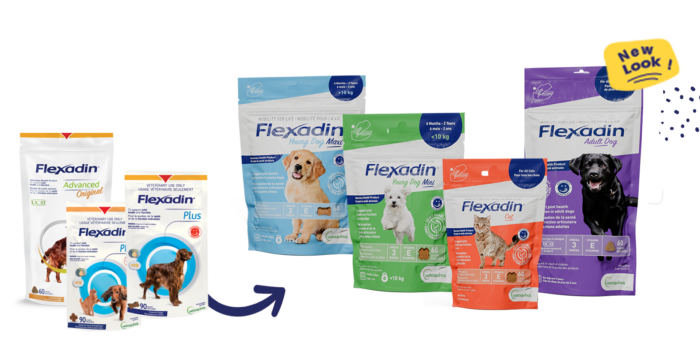
Flexadin brand evolves to better answer to pets needs
A tasty formulation that makes a veterinary health product a real pleasure. For a longer active life for your pet and favor bounds between you two.
- Formulation: Formulated for joint health in cats and dogs.
- Tasty chicken flavour: Chews are integrated into daily routines with ease.
- Daily routine: Once a day (1, 2 or 3 chews daily depending age and weight)
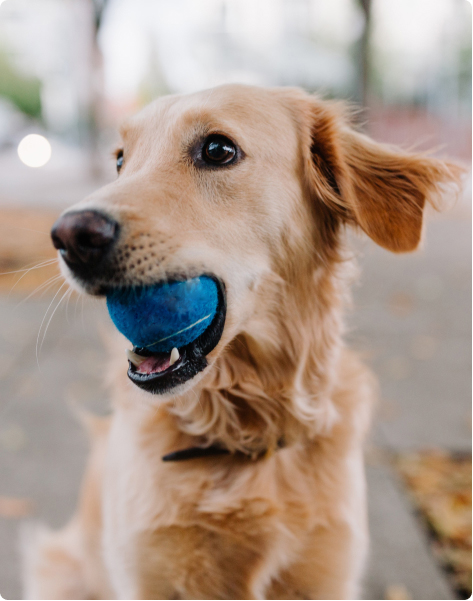
Flexadin brand evolves to better answer to pets needs
A tasty formulation that makes a veterinary health product a real pleasure. For a longer active life for your pet and favor bounds between you two.
- Formulation: Formulated for joint health in cats and dogs.
- Tasty chicken flavour: Chews are integrated into daily routines with ease.
- Daily routine: Once a day (1, 2 or 3 chews daily depending age and weight)

Each pet deserves it’s own Flexadin product

*This ingredient is a complement to other active ingredients. Omega-3 fatty acids may enhance palatability.
Easy administration
Tasty chicken flavour
Produced by a trusted veterinary pharmaceutical company for years
*Undenatured Collagen Type II® is a unique ingredient derived from chicken sternum cartilage using a patented, low-temperature manufacturing process. It helps maintain cartilage and joints health. UC-II® & logo are trademarks of Lonza/ UC-II® brand collagen with Undenatured Type II Collagen.
Flexadin product for every stage of your pet’s life
Flexadin Plus Mini has become Flexadin Young Dog Mini
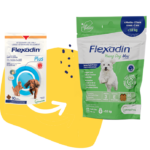
Flexadin Plus Maxi has become Flexadin Young Dog Maxi
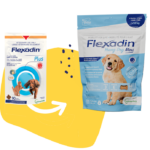
Flexadin Advanced Original has become Flexadin Adult
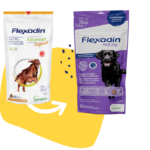
Flexadin Plus Mini has become Flexadin Cat
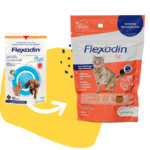
Does your pet experience joint discomfort ?
You want to see your pet happy, and ready to run and play, but joint problems interfere with daily activities?
80%
of dogs over 8 years old have mobility challenges1.
24%
of dogs 8 months to 4-year-old have joint discomfort2.
90%
of cats over 12 years old show signs of joint discomfort3.
(1)Prevalence, duration and risk factors for appendicular osteoarthritis in a UK dog population under primary veterinary care – Katharine L. Anderson,1 Dan G. O’Neill,2 David C. Brodbelt,2 David B. Church,3 Richard L. Meeson,3 David Sargan,4 Jennifer F. Summers,2 Helen Zulch,5 and Lisa M. Collins6
(2)Reference: Enomoto, M., de Castro, N., Hash, J. et al. Prevalence of radiographic appendicular osteoarthritis and associated clinical signs in young dogs. Sci Rep 14, 2827 (2024).
(3)CEESA – Pet Owner Survey – Representative survey among dog & cat owners (France 2013 March)
Support your pet’s mobility: What lifestyle changes can you make?
Control your pet’s weight
Being overweight puts a more significant strain on your pet’s joints. Simply losing weight can help with lameness!
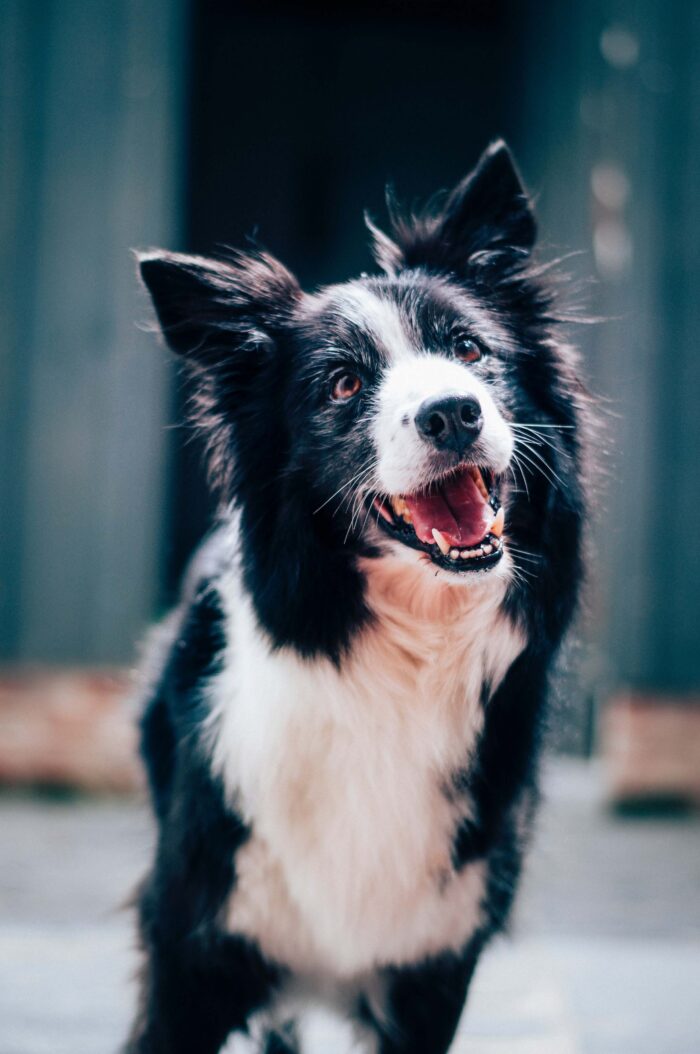
Control your pet’s weight
Being overweight puts a more significant strain on your pet’s joints. Simply losing weight can help with lameness!

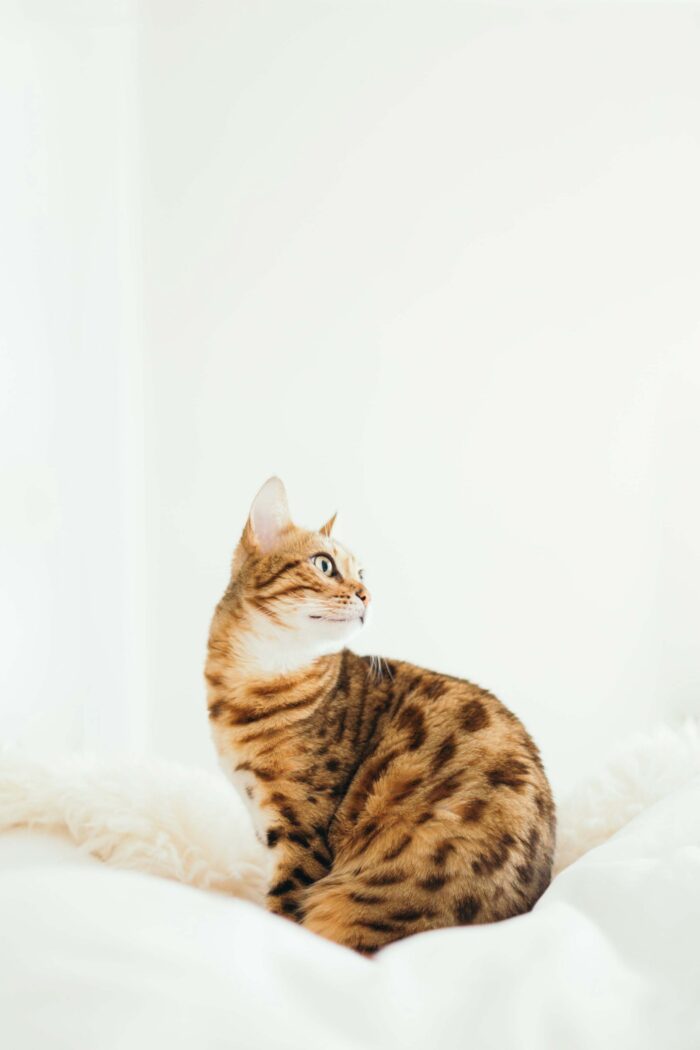
Reduce his/her discomfort at home
Cold & heat therapy: Compress (filled with flaxseed, for example) applied for 10 to 15 minutes to the affected area after intense exercise or a walk to provide relief.
Reduce his/her discomfort at home
Cold & heat therapy: Compress (filled with flaxseed, for example) applied for 10 to 15 minutes to the affected area after intense exercise or a walk to provide relief.

Support your pet’s mobility at home
Boost your pet’s mobility at home.
Activity:
Reduce high-impact activities. Have your pet regularly walk and exercise on softer ground, such as earth or grass, in a controlled manner.
Mobilisation exercises:
Massage before an exercise
Flexion/extension = 15–20 reps, 2–4 times a day
Stretching: 1–2 times for 15 seconds = 3–5 reps, 2–4 times a day
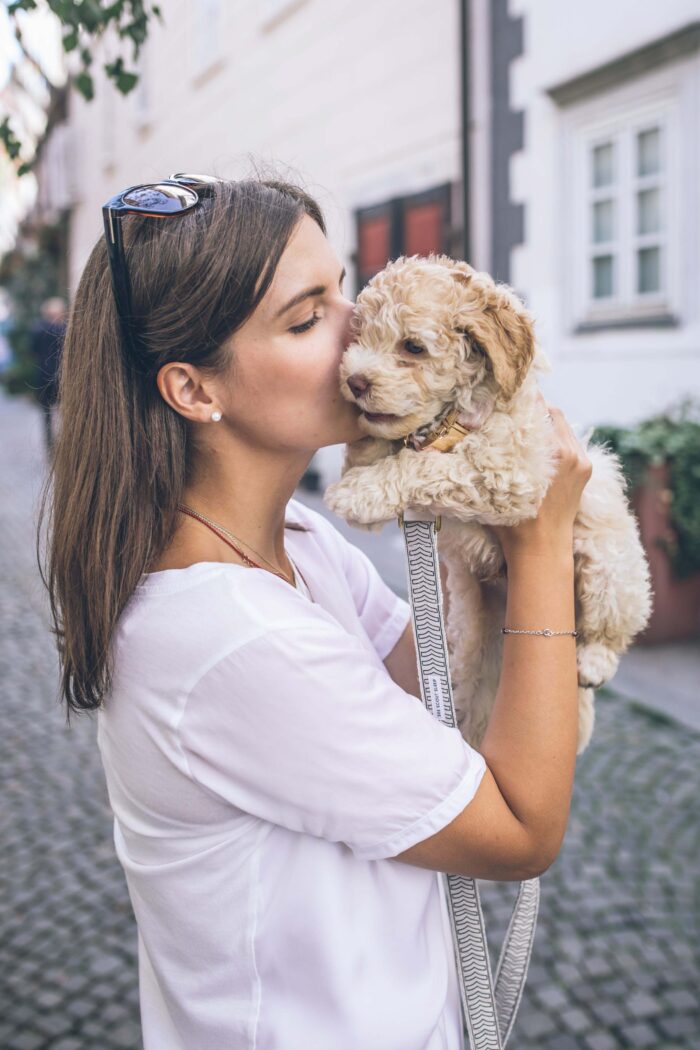
Support your pet’s mobility at home
Boost your pet’s mobility at home.
Activity:
Reduce high-impact activities. Have your pet regularly walk and exercise on softer ground, such as earth or grass, in a controlled manner.
Mobilisation exercises:
Massage before an exercise
Flexion/extension = 15–20 reps, 2–4 times a day
Stretching: 1–2 times for 15 seconds = 3–5 reps, 2–4 times a day


